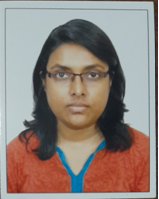Sociology is a new discipline compared to other social sciences. Yet, over the last few years, it has gained popularity in the academia, with new entrants in higher education showing interest in pursuing Sociology. When Sociology emerged in Europe in the early 19th century, it was conceived of as the scientific investigation of social institutions and social processes. The identity of Sociology has remained dynamic ever since. This has contributed to the popular appeal of the discipline in recent times, not only because of its ‘debunking’ of received wisdom, but the myriad unconventional career prospects it has engendered. Gone are the times when a graduate in Sociology only thought of a future career in academics or public administration or social work. Sociology graduates today legitimately contemplate careers in media and journalism, family or rehabilitation counseling, human resource management, public policy, data analysis and so on.
The Department of Sociology at Government General Degree College, Mangalkote, aims to developkeen interest in the disciplinary concerns of Sociology among the students and sensitize them about its contemporary relevance and career prospects. The Department is however conscious about the urban-centrism of Sociology as an institutionalized practice and consciously seeksto orient the students to these new opportunities keeping in view the predominantly rural location of the college and agrarian background of the students. At present, the faculty strength of the department is five. All are trained in metropolitan academic institutions of global repute, and national importance, and have wide-ranging research interests including: gender, body, biomedical technology, education, organizations, career, state, agriculture, development, religious experience,nature, environment and so on. They seriously re-imaginetheir privileged intellectual upbringing to conceive of the students from the point of view of ‘their’social location or milieu. Rather than superimposing English language mediated, urban allegories and metaphorsin classroom engagement, teachers adopt a student-centric, ‘situated’pedagogy – one that takes into account the immediate social concerns and psychological make-up of the students as local inhabitants and draws upon their everyday experiences.
At present, the student intake capacity of the department is twenty-five. There has been a sharp increase in admission and enrolment over the last few years. Five batches of students have successfully graduated till now. Few students from the earlier batches have already attained Masters’ degrees in Rural Studies and Sociology from Viswabharati University and the University of Burdwan respectively. Few are pursuing their post-graduate degrees and some students from the immediate batch have joined post-graduate programs in Sociology and Social Work. Some are pursuing Bachelors in Education to venture into school-level teaching.
Beyond classroom teaching and conventional examination system, the Department aims to engage students by organizing web-lectures by invited experts, enabling them have access to the ever-expanding body of sociological knowledge. A series comprising of ten web-lectures on varied themes like family, gender, environment, labour, disease, senses, social relations, theory, method, and so on, was conducted in 2021-22 academic session. The Department plans to engage students further by publishing an annual bilingual little magazine and organizing sensitization sessions in blended mode on career prospects in Sociology with experts from the core and cognate fields.







